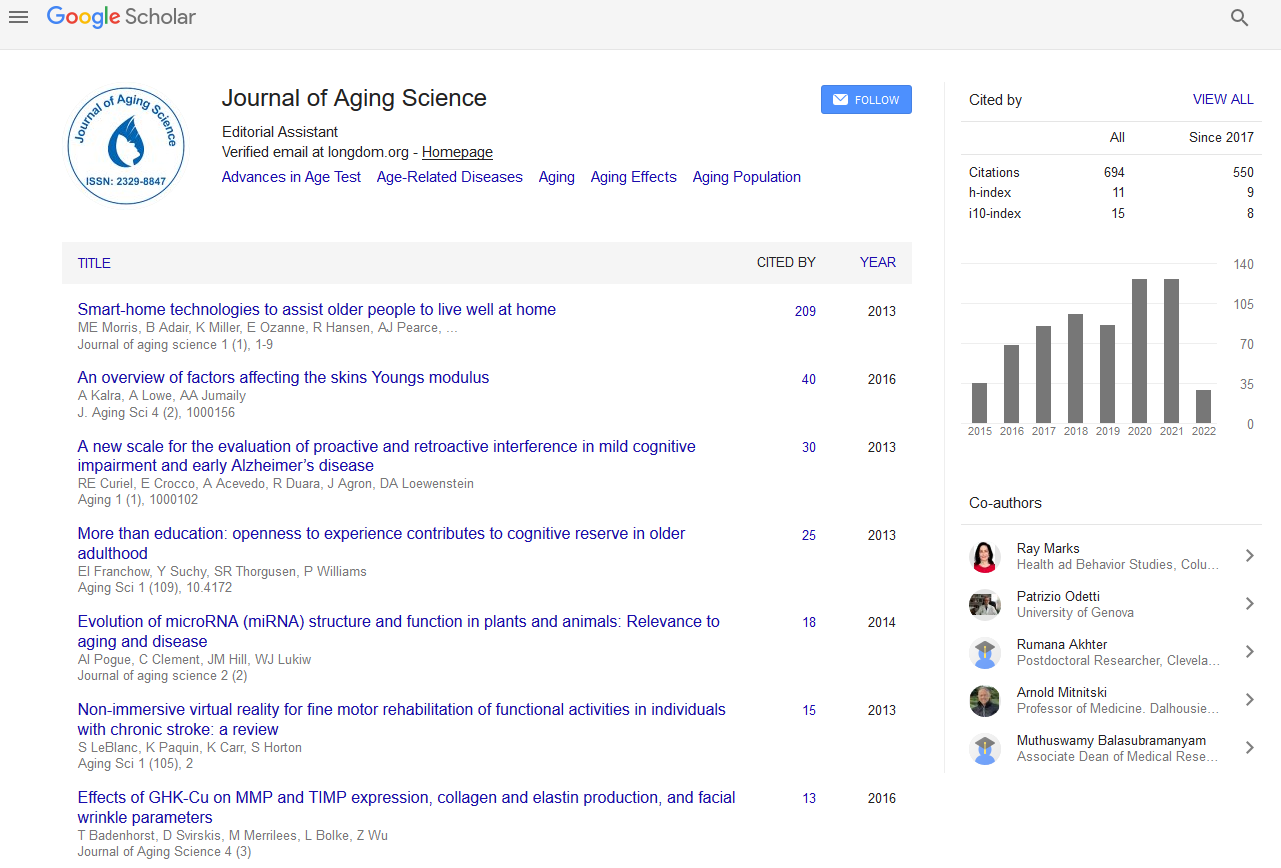PMC/PubMed Indexed Articles
Indexed In
- Open J Gate
- Academic Keys
- JournalTOCs
- ResearchBible
- RefSeek
- Hamdard University
- EBSCO A-Z
- OCLC- WorldCat
- Publons
- Geneva Foundation for Medical Education and Research
- Euro Pub
- Google Scholar
Useful Links
Share This Page
Journal Flyer

Open Access Journals
- Agri and Aquaculture
- Biochemistry
- Bioinformatics & Systems Biology
- Business & Management
- Chemistry
- Clinical Sciences
- Engineering
- Food & Nutrition
- General Science
- Genetics & Molecular Biology
- Immunology & Microbiology
- Medical Sciences
- Neuroscience & Psychology
- Nursing & Health Care
- Pharmaceutical Sciences
FALL PREDICTION IN OLDER ADULTS: FROM DUAL-TASK TO ARTIFICIAL NEURAL NETWORK
International Conference on Aging & Gerontology
August 8-9, 2016 Las Vegas, USA
Olivier Beauchet
McGill University,Canada
Scientific Tracks Abstracts: Aging Sci
Abstract:
Falls are highly prevalent among adults aged 65 years and over, with prevalence estimated around 35%. Falls lead to injuries, hospitalization, loss of independence and social disability, which impose high costs to public health and social services. Identification of fallers, which is the first step of falls prevention strategies in older community-dwellers, is therefore crucial for their efficiency and cost-effectiveness. There are complex interactions between host-related motor behaviors and environmental characteristics for the mechanism of falls. Due to the interplay between risk factors of falls, the prediction of falls remains difficult and depends on combinations of risk factors of falls. Over the past years, dual task-related gait changes have frequently been reported among older adults. However, published data are heterogeneous and show that impaired dual tasking is and is not associated with falls, or is even an irrelevant fall risk indicator compared to impaired single task performance. More recently it has been reported that Artificual Nerula Networks (ANN), using a set of clinical characteristics corresponding to the most commonly reported risk factors for falling, was an efficient way for the identification of recurrent fallers in older community-dwellers. Thus, these previous results suggest that ANNs could improve the predictive performance of the tools designed to predict falls. The aim of this presenttaion is systematic review all published data which examined the relationship between fall and changes in gait and/or attention-demanding task performance while dual tasking and to open a new perspective with ANN.
Biography :
Olivier Beauchet has completed his doctorate in Neurology and Geriatrics (1995 to 2000) at Saint-Etienne University, France. In 2005, he obtained his PhD in “Human Motor Function and Disability”. He was appointed Full Professor in 2008 at Angers University, France. He was recruited by McGill University in 2015, when he was appointed as the prestigious Joseph Kaufmann Chair in Geriatrics and the Director of the Centre of Excellence on Aging and Chronic Disease. Presently, he is a Full Professor of Geriatrics at McGill. He is recognized world leader in research on age-related gait disorders. 3
Email: olivier.beauchet@mcgill.ca


